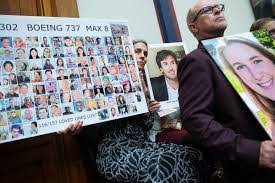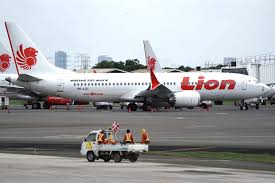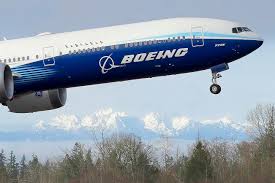Boeing’s Board Governance Failures and the 737 MAX Safety Scandal (Part III of IV)

In its decision, the Chancery Court methodically analyzed the weaknesses in Boeing’s board processes and its fundamental failure to meet basic Caremark standards in tackling airplane safety issues, particularly after the Lion Air crash in 2018.
First, the Board did not implement or prioritize safety oversight at the “highest level of the corporate pyramid.” None of Boeing’s Board committees were specifically assigned responsibility for overseeing airplane safety. Every committee charter was silent as to airplane safety.
A former director, who retired in 2011, stated, the “board doesn’t have any tools to oversee” safety issues. Many other companies in the aviation industry maintain specific committees charged with oversight of airplane safety and flightworthiness of airplanes.
Second, the Court noted that the Board at large was not formally monitoring or discussing safety on a regular basis. Even after the Lion Air crash, the Board meeting agenda did not include a specific discussion of safety but instead focused on restoring profits and efficiency. In particular, the Court cited Board discussions of 737 MAX issues were “passive invocations of quality and safety . . . [that] fall short of the rigorous oversight [Caremark] contemplates.”
While Boeing’s Audit Committee was charged with oversight of risk as a general matter, the Audit Committee never examined or even considered airplane safety. For example, when the Board discussed audit plans in 2014 and 2017, it did not mention nor address airplane safety. Instead, the Audit Committee maintained a singular focus on financial risks and profits. Even after the Lion Air 737 MAX crash, Boeing’s CCO update to the Audit Committee failed to mention “product safety” as a “compliance risk.”

Even Boeing’s enterprise risk function ignored the risk and impact of airplane safety issues. Instead, the enterprise risk process primarily focused on production and financial risk.
Third, management’s periodic reports to the Board did not include safety information. CEO Muilenburg sent the Board a monthly summary and competitor dashboard, and occasionally made presentations at Board meetings. These communications focused on the business impact of airplane safety crises and risks, and not overall product safety issues.
Further, the Court cited that Boeing’s Board did not have a mechanism for receiving internal complaints about airplane safety. Boeing’s internal reporting system only reached managers below the senior management and board level. The Board never learned about any employee or whistleblower safety complaints.
In the absence of any focus or controls on airplane safety, the Boeing Board pushed for achievement of production deadlines and competition with its chief rival, Airbus. In reviewing and approving the 737 MAX project, the Board never examined, considered or questioned potential safety issues resulting from the re-design of the earlier generation 737 NG. Indeed, Boeing adopted a “frenetic” schedule to develop the 737 MAX in response to Airbus competition. In doing so, Boeing ignored or glossed over significant re-engineering issues.
Boeing engineers became concerned about safety and manufacturing concerns. In the summer of 2018, an engineer at the plant raised safety concerns with the 737 MAX general manager and factory leaders, stating prophetically in a written communication, “And for the first time in my life, I’m sorry to say that I’m hesitant about putting my family on a Boeing airplane.” Similar concerns were raised by other Boeing employees. While some made their way to senior management, none made it to the Board.

Post-Crash Governance Failures
After the Lion Air crash, on October 29, 2018, Boeing management did not notify the Board of the crash for ten days. Even though the FAA and internal Boeing engineers quickly identified the MCAS as responsible for the crash, the CEO reported to the Board that the 737 MAX was safe. After press reports identified the MCAS failures and Boeing’s failure to disclose safety issues to the FAA and airline customers, the CEO informed the Board that the reports were false and blamed the Lion Air flight crew for the crash.
The Board did not convene to consider the Lion Air crash until an optional meeting was scheduled for November 23, 2018. There are no minutes of the meeting and the management talking points provided misleading explanations and false denials of responsibility. Boeing’s CEO continued to push the claim privately and in public that the 737 MAX was safe.
A formal board meeting did not occur until December 16 and 17, 2018. The focus of the meeting was not on the Lion Air crash itself and safety issues, but on how Boeing could restore profitability and efficiency.
The Ethics and Compliance presentation to the Audit Committee listed the Lion Air crash as a “hot topic” but did not include any specific mention of airline safety issues. The agenda for the next scheduled Audit Committee meeting omitted any reference to airplane safety issues.

In January 2019, the Department of Justice opened a criminal investigation. At the February 2019 board meeting, the Board specifically decided to delay a possible internal investigation, deferring to conclusion of regulatory investigations or until such time as the Board determines such investigation would be appropriate. Several board members were aware of incriminating text messages between Boeing Technical Flight Pilots concerning the MCAS deficiencies and withholding of critical information from the FAA. Those messages were not given to the FAA until October 2019.
On March 10, 2019, less than one month after the Boeing Board declined to launch an internal investigation, Ethiopian Airlines Flight ET 802 crashed, killing all 157 passengers and crew.
Several days later, the 737 MAX was grounded by the FAA.
Between November 2018 and March 2019, when the FAA ordered the grounding of the 737 MAX, Boeing’s Board never considered or even discussed grounding the plane because of safety concerns. After the formal grounding, Boeing finally turned its attention to safety issues.
At the next Board meeting in late April 2019, the Board devoted over two hours to discussing the Ethiopian Airlines crash and implications for the company. It was not until May 2019, a newly-established Airplane Committee requested information on the causes of the two crashes. In August 2019, the Board formally created an Aerospace Safety Committee.
















1 Response
[…] Source link […]